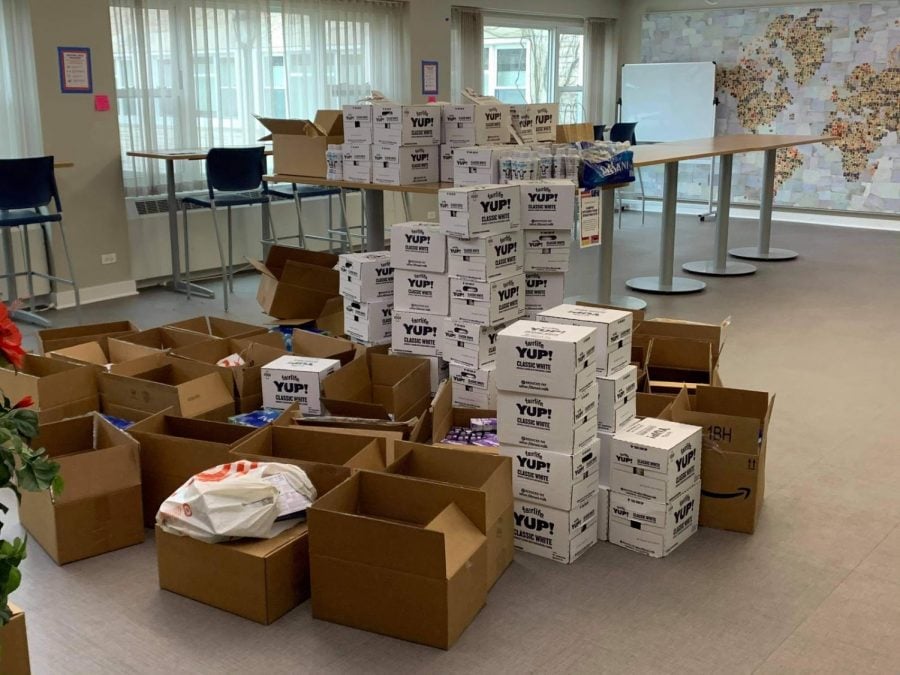NU students, workers donate excess Wildcat Wellness meals
Collection boxes set up in Allison Hall. Campus Kitchen donated six car-loads of food to Chicagoland nonprofits.
January 31, 2021
Northwestern students participating in the Wildcat Wellness quarantine were overloaded with food from NU Dining, including meals, non-perishable snacks and milk. Much of it went unused.
Once NU Dining Sustainability Director Sarah Levesque noticed the unclaimed meals accumulating, she said she knew her team had to take action.
“I put out a call for help to my network,” Levesque said in an email to The Daily, “and organizations from all over the city and Chicagoland area responded quickly to recover the food.”
NU Dining worked with a network of local nonprofits, including Evanston Latinos and Taste for the Homeless — which delivers food to Chicago residents experiencing homelessness. Together, they distribute unclaimed hot meals to food-insecure residents of the Chicago metro area.
Levesque said they donated over 5,000 meals after the first week of Wildcat Wellness and expects between 8,000 and 10,000 meals to be distributed in total.
While NU Dining recovered hot meals, the student organization NU Campus Kitchen set up collection boxes in dorm buildings to collect non-perishables such as water bottles, shelf-stable milk and snacks.
Weinberg freshman Sam Keimweiss said he donated granola bars and milk to the Campus Kitchen collection box in Allison Hall. “There were a lot of people talking about it, actually, even before I came to campus,” Keimweiss said.
Campus Kitchen President Lizzie Wuertley said students have consistently filled the collection boxes in the dorms with spare food and beverages. So far, the club has donated six car-loads of food to Chicagoland nonprofits such as Connections for the Homeless and La Casa Norte.
The initiative, Wuertley said, is one of their most successful donation campaigns yet.
“I’m really grateful for everyone that donated and all of the students who reached out to us,” the Weinberg junior said. “I think it was so rewarding to see everyone donating all this food and to see how much of an impact we can actually make.”
Wuertley said that Campus Kitchen is allowed to resume more operations this quarter than in the fall due to a risk mitigation plan it coordinated with the University. The organization has already started collecting excess food from dining halls.
Kallista Zhuang, a Weinberg freshman on the Campus Kitchen Leadership Team, said communication from the University about unused food was inconsistent, but still appreciated that the University put a plan in place to address the issue.
Zhuang added that she hopes the donation drive effort will encourage all students, not just those who are environmentally conscious, to get involved in further food recovery projects.
“Food sustainability should honestly be normal,” Zhuang said. “It shouldn’t be a big deal.”
Correction: A previous version of this story implied students could return uneaten food to NU Dining for donation. NU Dining does not accept returned food. The Daily regrets the error.
Email: [email protected]
Twitter: @rjleung7
Related Stories:
— Evanston food pantries and soup kitchens prepare for winter
— NU announces return-to-campus guidelines, to partner with Color for COVID-19 testing
— Compass Group to recall dining workers laid off during pandemic


